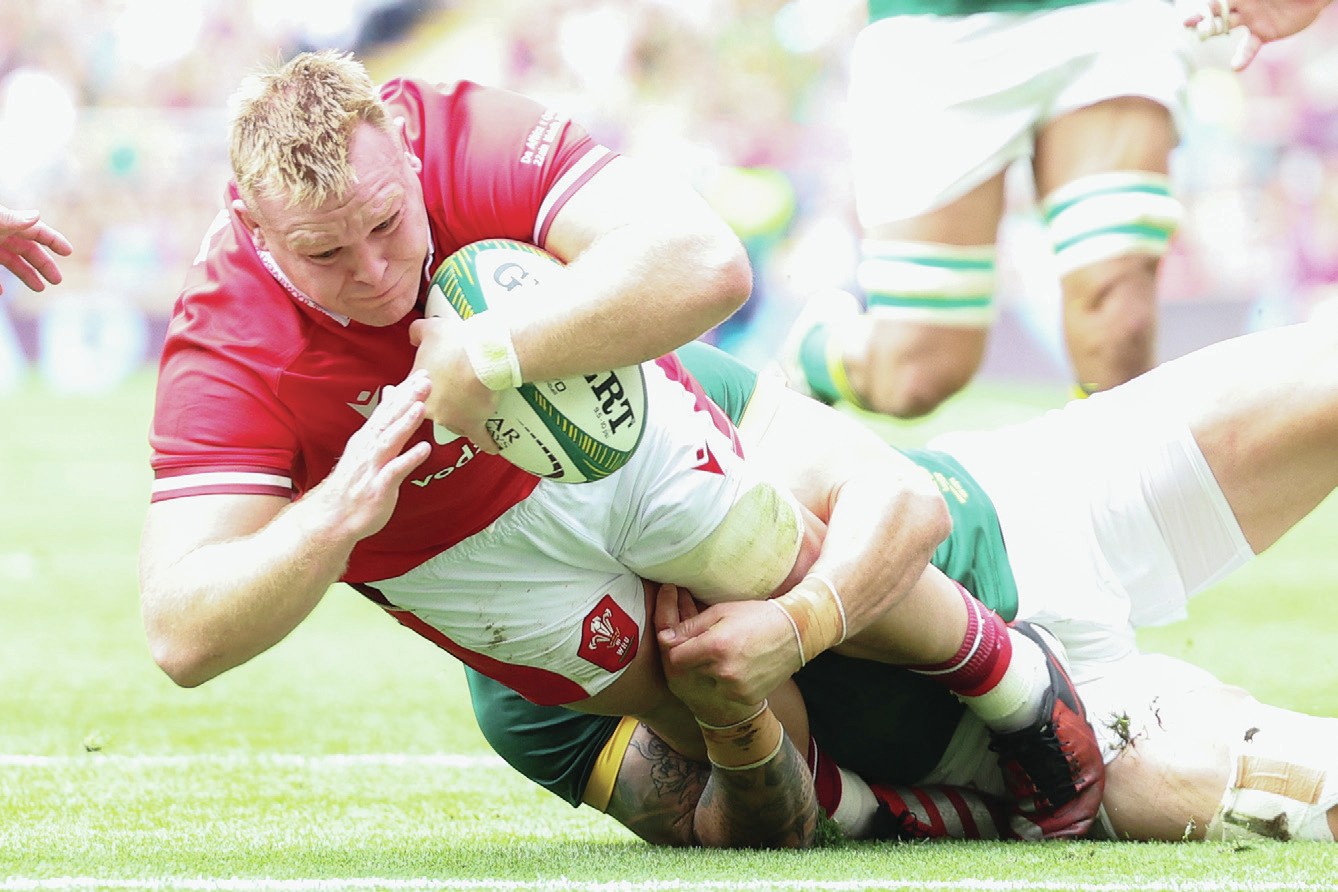Lake gives body and soul to lift Wales

Categories: International Rugby
Tags: Australia, England, France, Ireland, New Zealand, Ospreys, Peter Jackson, Premium, Six Nations, Wales, Warren Gatland
PETER JACKSON
Powerhouse: Dewi Lake, left, bursts over for Wales and Mason Grady, right
PICTURES: Getty Images
THE sixth best team in Europe against the double world champions on neutral ground in London sounded ominously like another of those embarrassing mis-matches.
The challengers’ arrival at Twickenham in such a threadbare condition would have had the Springbok hierarchy wondering whether the opposition were in a fit state to give them a game ahead of the infinitely more serious business back home, the grudge series against Ireland.
Since their Six Nations whitewas...
Continue reading...
Access all our premium content from as little as 14p per day!
Already a subscriber to our website? Login